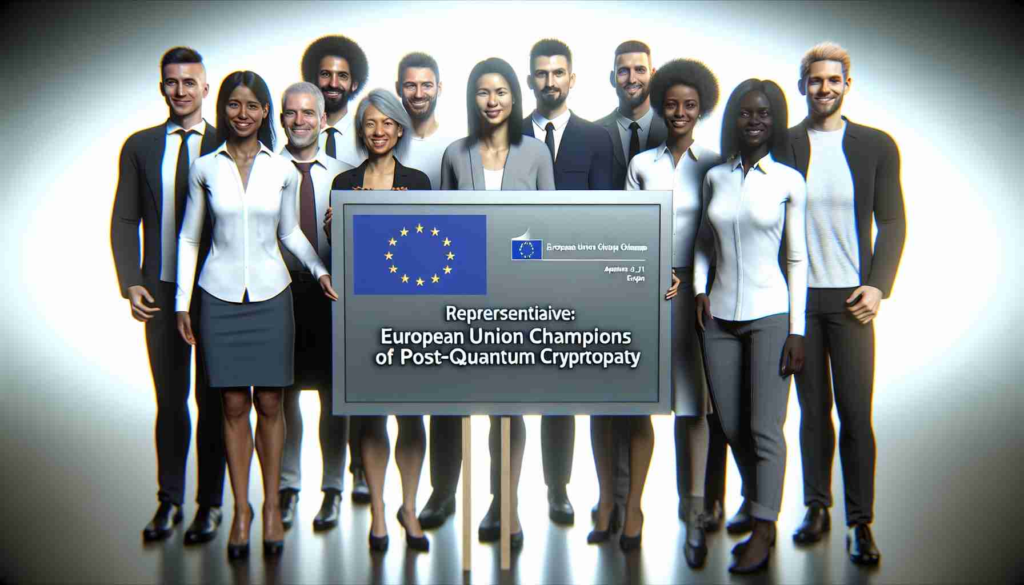
Summary: The European Commission has launched a concerted effort to move the European Union to robust post-quantum cryptography, a requirement to counter the looming threat of quantum computing. This recommendation supports the security and operational continuity of the EU's Digital Single Market. The transition to quantum-resistant cryptography is also part of a broader global effort to strengthen digital defenses in anticipation of the era of quantum computing.
As quantum computing advances rapidly and promises to revolutionize industries, the European Commission is taking decisive steps to future-proof the European Union's cybersecurity. Recognizing the vulnerability of existing encryption to quantum technologies that can decrypt data designed to be secure by today's standards, the Commission recommended that Member States move to post-quantum cryptography (PQC).
PQC is a form of encryption that is intended to be secure against advanced algorithms deployed by quantum computers. The European Commission's support for this transition underscores the EU's determination to proactively tackle cyber threats and maintain its digital sovereignty.
This strategy is outlined in a way that enables a smooth transition to PQC by leveraging software-based solutions that can be integrated into your current infrastructure. This proactive approach will help prevent potential challenges in interoperability across the Digital Single Market and maintain the seamless nature of digital communications and business within the EU.
The European Commission's push reflects a pattern within the cybersecurity industry, which increasingly recognizes the need to evolve as technology advances. With the arrival of quantum computing on the horizon, there is increasing pressure to develop and deploy cryptography that can defend against these powerful machines.
Despite challenges such as the significant efforts to standardize and update cryptographic systems, the need for action is clear. Advanced planning is required because the data currently protected will be sensitive for many years and delays in transitioning to PQC may expose it to “collect now, decrypt later” type cyber-attacks. It is important.
The European Union does not function in a vacuum. This is part of a global effort led by the National Institute of Standards and Technology to develop a set of authoritative PQC standards. As both the public and private sectors inch closer to quantum reality, staying informed about organizations like NIST and the European Union Cybersecurity Agency is key to understanding the progress of PQC standardization and implementation. .
In undertaking this strategic cybersecurity strengthening, the European Commission is resolute in protecting personal and organizational data across the EU, thereby ensuring the lasting strength and stability of the region's digital economy.
European Commission’s move towards post-quantum encryption
As the dawn of quantum computing approaches, the European Commission is spearheading efforts to ensure the European Union's cybersecurity infrastructure is able to counter emerging threats. Quantum computing has the potential to defeat traditional encryption methods, highlighting the urgency of post-quantum cryptography (PQC). The initiative aims not only to protect sensitive information, but also to maintain the integrity of the EU's digital single market.
Industry reaction and market forecast
The cybersecurity industry is dynamically responding to these developments. PQC represents a growing market segment, with researchers and companies investing heavily in new algorithms that can counter quantum attacks. According to market research, the global quantum cryptography market is expected to witness significant growth over the next decade. This surge can be attributed to the growing demand for secure communication channels and growing awareness of the potential impact of quantum computing.
Companies specializing in encryption technology are increasing their efforts to develop PQC solutions that are effective and implementable within existing infrastructure. This approach aims to reduce the costs and technical barriers associated with implementing new security measures.
Challenges and challenges
Despite the promising path forward, the evolution to post-quantum encryption is fraught with challenges. One of the big issues is the standardization of PQC algorithms. Global agreement on which algorithms to use is important to ensure cross-border compatibility and security. Furthermore, retrofitting existing systems with his PQC is labor-intensive and requires an unprecedented scale of resources and coordination. Organizations must balance the urgency of implementation with the care required to maintain system reliability and efficiency.
Also, about the “harvest now, decrypt later” threat where attackers could be harvesting encrypted data today, waiting for quantum computers to be able to decrypt it well enough. There are also concerns. This makes it important to move to his PQC sooner or later to protect long-term data confidentiality.
Global cooperation on PQC
International cooperation is critical to confronting these impending changes. The European Union is aligned with global efforts to develop robust PQC standards. By taking a strategic position on PQC, the EU is contributing to the global security debate and strengthening its commitment to a secure digital environment. If you want to learn more about international efforts and advances in cybersecurity, it's helpful to stay up-to-date with authoritative organizations. Valuable references include the National Institute of Standards and Technology (NIST) and the European Union Cybersecurity Agency (EU), which provide insight into cybersecurity trends and standards.
In conclusion, the European Commission's active commitment to strengthening cybersecurity through the adoption of PQC will have far-reaching implications not only for the EU but for the digital world as a whole. The robustness of our near-term digital economy and the protection of personal and organizational data depends on the steps we take today to protect our digital environments from quantum threats.

Natalia Toczkowska is a prominent figure in digital health technology, recognized for her contributions to the advancement of telemedicine and healthcare apps. Her work focuses on developing innovative solutions that improve patient care and accessibility through technology. Her Toczkowska research and development to create user-friendly and secure digital platforms has helped increase the effectiveness of telemedicine consultations and patient monitoring. Her dedication to integrating technology in healthcare has not only improved patient outcomes, but also streamlined healthcare processes and made her a key influencer in the field of digital health innovation.


